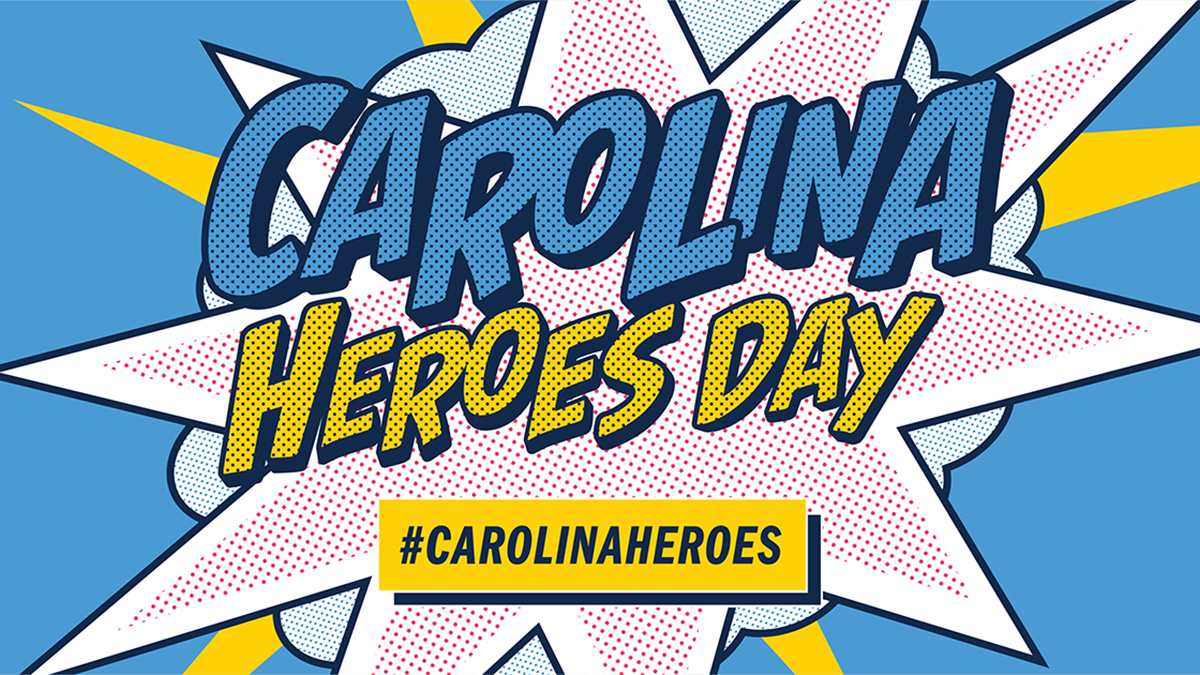School of Government Celebrates Its Own #CarolinaHeroes
April 28 is National Superhero Day, and in honor of this, the University is celebrating the Superheroes around campus. #CarolinaHeroes work across many different fields – healthcare, research, operations, food service, and more – to keep the University running safely during the COVID-19 pandemic. Much of their brave work is being put to use to help find treatment, mitigate the disease’s spread, and maintain a functional yet safe public life.
Today the School of Government is spotlighting its own #CarolinaHeroes: faculty members working diligently to inform, prepare, and advise state and local governments in their efforts to help protect North Carolina’s communities and stem the spread of COVID-19. Read more about their work on the front lines of this public health crisis below.
Diane Juffras has worked extensively to help local government employers navigate workplace challenges related to COVID-19. Her blog posts have provided ongoing interpretation of the Families First Coronavirus Response Act, the Emergency Paid Sick Leave Act, and more. In addition to co-hosting the COVID-19 primer course on March 18, she has hosted four Zoom calls on employment law and COVID-19 that have attracted over 1,700 live participants.
Norma Houston remains an invaluable resource for North Carolina’s local government officials in times of emergency. She has authored six blog posts related to COVID-19, including guidance on emergency ordinances, emergency authority, procurement guidelines, and more. She has hosted or co-hosted three webinars on COVID-19, including a primer course on March 18 that was delivered live to over 1,800 North Carolina officials.
The director of the Development Finance Initiative (DFI) at the School, Tyler Mulligan’s writings have created a framework that local governments can use to provide emergency loans for local small businesses in the wake of COVID-19. DFI has offered free phone consultations to North Carolina local governments interested in implementing such a program, and Mulligan co-hosted a Zoom call on the same topic. Cities like Belmont have already put Mulligan’s guidance into practice.
Faculty member Chris McLaughlin continues to host the School’s “Office Hours” calls during the pandemic. In these sessions, McLaughlin convenes relevant faculty members to answer an array of pandemic-related questions from local government officials across the state. In addition, McLaughlin is answering the call from tax officials across the state for guidance about taxes, reappraisals, and budgets during the COVID-19 pandemic, partnering with the North Carolina Department of Revenue. Read more about his answers to these pressing questions here.
Trey Allen has dedicated much of his time to advising local government officials on how to hold meetings during this unprecedented time. His blog post on recommended practices for electronic meetings during the pandemic has attracted thousands of views, and provided critical clarity for board members who were unsure how to conduct the process remotely. In addition, Allen's advising through hours of emails and calls on how to satistfy open meeting law requirements during the crisis has proved vital to local government officials.
Frayda Bluestein's wealth of knowledge surrounding open meetings laws has also been tapped by many local government officials unsure of how to navigate their official duties during self-quarantine. Her Coates' Canons blog post elaborating on this issue attracted many commenters searching for additional answers, to all of which she dutifully replied. Similarly, Bluestein has also replied to countless queries on open meeting laws via advising calls, email, and responses for clarifying comments in news stories.
Kara Millonzi has hosted multiple Zoom calls to advise local government officials on finance-related issues throughout the pandemic in partnership with the North Carolina Office of the State Treasurer. Along with faculty member Greg Alison, Millonzi answers questions on budgeting, reporting, auditing, internal controls, utilities, and more.
In addition to discussing finance, Millonzi has collaborated with the Environmental Finance Center’s Shadi Eskaf to facilitate discussions about water and wastewater operations during the outbreak and the impact Executive Order 124 will have on local governments utilities more broadly at this time. To access recordings of these calls, please click here.
Public health expert Jill Moore has been essential in preparing local governments to answer the extensive array of questions that form in the wake of a health crisis. In addition to co-hosting the COVID-19 primer webinar, Moore has also answered questions from public officials in the School’s Office Hours session on March 19 and presented a webinar on April 2 to address the legality of sharing confidential information of local government employees during the crisis.
Our Impact By the Numbers
150,000 | views of Coates’ Canons blog posts since March 1, 2020
6,500 | unique participants in the School’s COVID-19 related Office Hours and webinars
53 | blog posts authored by School faculty addressing the challenges local governments face during and after the pandemic
27 | webinars and “Office Hours” calls to help local governments respond to COVID-19
The School extends its sincere gratitude not just to our faculty, but to all the #CarolinaHeroes working to slow the spread of this disease and build a framework for the University community to thrive in its aftermath.
Join us in showing appreciation by wearing Carolina blue today. Snap a photo, post it on social media, and use #CarolinaHeroes to tell us why you are so grateful for these brave employees.
Published April 28, 2020



